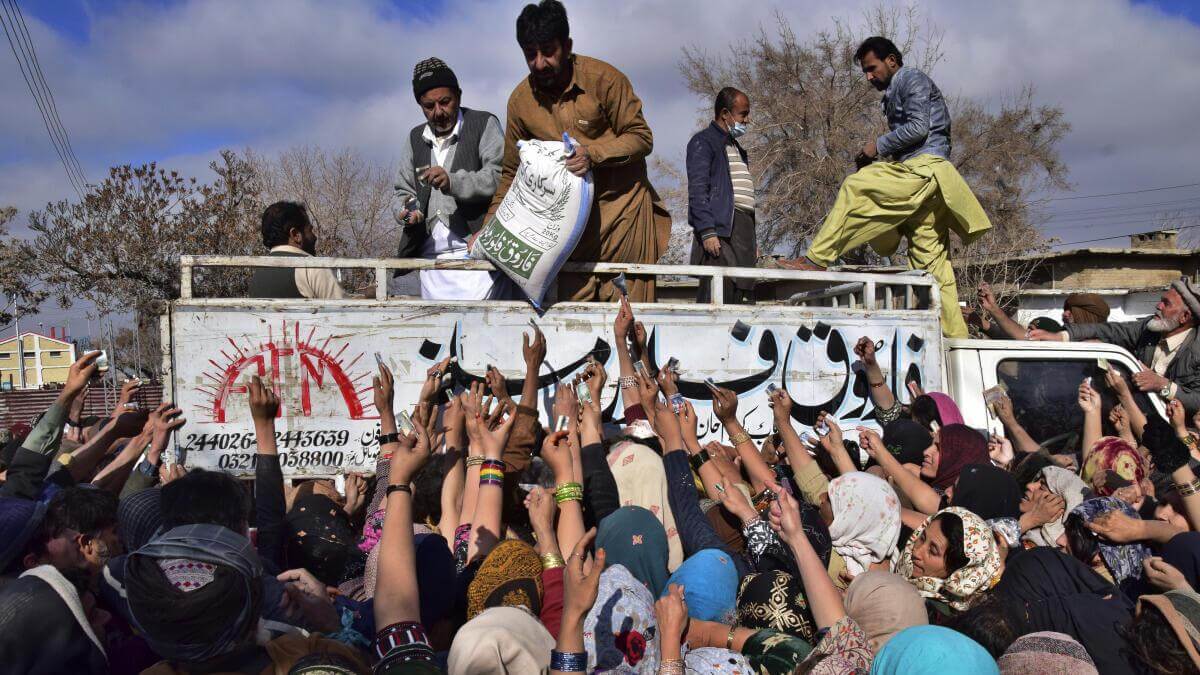Pakistan’s Consumer Inflation hit a record high in May, touching 37.97%. With this, Pakistan had the highest inflationary rate in South Asia, surpassing Sri Lanka, which had an annual inflation rate of 25.2 % in May.
M Sarwar Gondal, spokesperson of the Pakistan Bureau of Statistics (PBS), noted in a tweet that “measured by CPI, the headline inflation increased to 38% during May 2023, while an increase in urban and rural CPI of 35.1% and 42.2%, respectively, are recorded.”
Bloomberg : Pakistan keeps Asia’s fastest inflation title for second month. https://t.co/9eMEDbFVoe
— PTI (@PTIofficial) June 1, 2023
Record High Inflation
The PBS reported that non-perishable food and transport costs rose by more than 50% year-on-year (YoY) in May. The figures for May are more than the finance ministry’s earlier projection of 34%-36%. Alcoholic beverages and tobacco prices experienced the highest YoY rise of 123.96%, while the cost of recreation and culture rose by more than 70%.
The country is reeling under a severe economic crisis on account of high external debt, dwindling foreign exchange reserves, a depreciating rupee, a global energy crisis and devastating 2022 floods. Additionally, the stalling of the International Monetary Fund (IMF) bailout for the country has further exacerbated the crisis.
The statistics come just a week before the Shehbaz Sharif-led government is scheduled to present its annual budget. The record inflation also coincides with the deteriorating political situation in the country.
#Pakistan's year-on-year #inflation hit a record 37.97 percent in May, official data revealed Thursday, with the nation on the brink of economic collapse and crucial bailout talks stalled.https://t.co/T8Vdu1vkID
— The Times Of India (@timesofindia) June 1, 2023
IMF Bailout Package; China, Saudi Arabia Extend Help
Nathan Porter, IMF mission chief to Pakistan, recently advised the country to resolve its political crisis before seeking an extension of the $6.5 billion package to prevent bankruptcy. The political turmoil in the country due to Imran Khan’s 9 May arrest, and consequent release owing to violent protests and a Supreme Court judement, have worsened the situation in the country.
Pakistan undertook several measures per the IMF’s demand for fiscal adjustments, and inflation in the country has been on a rapid rise ever since.
The IMF demanded the withdrawal of services, an increase in energy prices, a market-based exchange rate, and new taxation to supplement the country’s revenue requirements. While Pakistan claims it has fulfilled all the requirements, the IMF still requires more convincing.
Pakistan and IMF have failed to reach an agreement on the immediate $1.1 billion bailout package, despite talks between the Pakistani PM and IMF Managing Director Kristalina Georgieva.
Meanwhile, the UAE has committed $1 billion in support to cash-strapped Pakistan, taking it one step closer to the IMF Bailout.
Pakistan has previously received help from China, which extended $2 billion rollover deposits to help secure the IMF loan. Saudi Arabia also pledged $2 billion in external financing support to the nation, thus meeting one of the crucial requirements of the IMF deal.
Nevertheless, the latest inflation statistics have further worsened Pakistan’s chances of striking a deal with the IMF.

